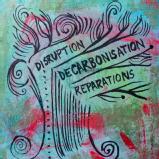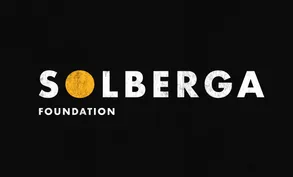Disruption, Decarbonisation, Reparations

This event brings together activists, civil society leaders, and academics working towards the common goal of climate justice, broadly construed. Over two days of discussion, we hope to touch on many of the diverse issues that form part of the climate justice conversation. See below for our programme of activities.
After-conference event
Thank you to all that joined us over the last two days!
Alexander Stingl has kindly offered to host an after-conference event as his virtual pub night “The Scholar and Pigeon”.
- Date/time: Thursday, September 3, 2020 8 pm
- Zoom link: https://us02web.zoom.us/j/85323291863?pwd=SDBUcnA1WE1lTWx1THRwNFRlaGVvZz09
- E-mail riggnet@warwick.ac.uk for the passcode (without which you cannot enter the event)!
Continue any conversation threads that developed over the last two days or start new ones! In addition, if anybody feels they want to share thoughts or memories in regard to the unexpected passing of anthropologist David Graeber, at age 59, yesterday, The Scholar and Pigeon is certainly a place to do so.
Important Update
We are moving this event from MS Teams to Zoom for accessibility reasons. This was a difficult decision to make at such a late stage but we believe that the platform change will result in an easier and more streamlined event experience for all - we are taking precautions to mitigate the security concerns associated with Zoom. One link can be used to access each full day of events. Simply click the relevant link and join at the times indicated in the panel-specific information below. The links are as follows:
Wednesday, 2 September: Join the event
Thursday, 3 September: Join the event
Timetable
|
Wednesday 2 September |
Thursday 3 September |
|
|---|---|---|
|
Zoom Link |
||
|
9:30 – 11 am BST |
||
|
11:30 am – 1 pm BST |
Collective liberation: Black Lives Matter, queer justice, and intersectionality |
|
|
2 – 3:30 pm BST |
||
|
4 – 6 pm BST |
Justice as healing: indigenous and anti-colonial cosmologies |
Strategising pathways forward: COP26 and beyond when organising for climate justice |
Programme Details
Wednesday, 2 September 2020
Justice centred transition and reparation
9:30 am - 11 am BST (Wednesday 2 September)
How can we transition to a greener and healthier world where historic economic, social, cultural and political forces that drove us towards current inequities are overhauled and built anew?
Chair: Leon Sealey-Huggins (University of Warwick, Global Sustainable Development)
Speakers:
- Tomaso Ferrando (University of Antwerp): Redistribution, reparation and food sovereignty for climate justice
- Mika Minio-Paluello/Anna Markova (Transition Economics): Green & Better: Re-building post COVID
- Seb Munoz (War on Want): Mining community voices in low carbon futures
- Rahima Ansar Musaliar (University of Warwick Law School): Displacement, climate justice and human rights
- Harpreet Kaur Paul (University of Warwick Law School): Common but differentiated responsibility to repair climate impacts already in motion
- Nithya Natarajan (King's College): Climate Precarity - rethinking climate adaptation as labour justice
- Katrien Steenmans (Coventry University): Circular Economies: Unsettling or Reinforcing the Status Quo?
- Laura Ho (Green New Deal UK): Campaigning for a new deal: building the movement for a Green New Deal in the UK
Litigating climate justice
11:30 am - 1 pm BST (Wednesday 2 September)
The Netherlands v. Urgenda Foundation case was a watershed moment for the climate justice movement. States and corporations must do more to give us any chance to meet the “1.5°C to stay alive” ambition. Children are seeking intergenerational justice and Peruvian farmers seeking fiscal contributions for the cost of flood defenses in our already warmed world. We’ll explore the utilisation of litigation for increasing decarbonisation ambition and addressing and repairing the consequences of our world at 1.1°C.
Chair: Kim Bouwer (University of Exeter Law School)
Speakers:
- Ilina Cenevska (Ss. Cyril and Methodius University): The Challenges of Climate Change Litigation before the Courts of the European Union
- Sam Varvastian (Cardiff University): Holding fossil fuel companies accountable for climate change
- Noah Walker-Crawford (University of Manchester): Proving Causality: Scientific and Legal Standards of Evidence in Luciano Lliuya v. RWE
- Ingrid Gubbay (Hausfeld International law firm): Intergenerational rights in the UN Committee on the Rights of the Child (commenting on legal strategy for sustainability in the UN CRC submission 16 petitioners, v. Argentina, Brazil, France, Germany & Turkey)
- Tessa Khan (Climate Litigation Network): Reflections on Urgenda: legal strategy, social movements and strategies moving forward
Trade and investment-driven vulnerability
2 - 3:30 pm BST (Wednesday 2 September)
Nationalist ‘take back control’ movements ironically enable secret trade and investment agreements that promote privatisation over social protection and enable a race to the bottom on worker’s rights, climate, environmental and food standards. Attempts to protect civilians from health (including COVID-19) and unmitigated climate change elicit legal challenges in secret tribunals. The Energy Charter Treaty locks signatories into fossil fuel dependence and intellectual property regimes make it more difficult for people to access affordable medicine, green energy, and prevent farmers from saving seeds. Trade deals entrench global imbalances. Tackling trade and investment agreements will be an essential step in achieving justice-oriented action on climate change, health inequities and economic injustice.
Chair: Celine Tan (University of Warwick)
Speakers:
- Charlotte Villiers (University of Bristol): Sustainability and inequality in global supply chains
- Serena Natile (Brunel University London and University of Warwick): Disruptive Redistribution: Rethinking the SDGs to Target Extreme Wealth
- Nick Bernards (University of Warwick): Microinsurance and the political economy of social protection under permanent austerity
- Nicolás Perrone (Universidad Andrés Bello): Addressing the blind spots of international investment law: the situation of local communities
- Kyla Tienhaara (Queen's University): Will investment treaties slow down the energy transition or make it more expensive?
- Cecilia Olivet (Transnational Institute): One Treaty to rule them all: how the Energy Charter Treaty gives corporations power to halt the energy transition
- Jimena Sierra Camargo (Los Andes University and Catholic University of Colombia): Shaping the mining law in Colombia: transnational stakeholders, global profits and local impacts
Justice as healing: indigenous and anti-colonial cosmologies
4 - 6 pm BST (Wednesday 2 September)
Moving beyond a Western epistemological framework, this event will centre practice based approaches to understanding climate change. What does it mean to be a good ancestor to future generations and act in radical solidarity with those on the frontline of climate change impacts today?
Chair: Harpreet Kaur Paul (University of Warwick Law School)
Speakers:
- Vitor Ido (Universidade de São Paulo): Indigenous Traditional Knowledge between Commodification and Instrumentality: Ways Forward from the Brazilian Amazon
- Silvana Tapia Tapia (Universidad del Azuay): Pacha Mama vs the State: tensions and encounters between indigenous cosmovisions and legal approaches to criminal justice in Ecuador
- Mama D (Community Centred Knowledge): Food journeying and ancestry
- Eliesio Marubo (Union of the Indigenous People of the Javari Valley Indigenous Land): Biopiracy: the Indigenous Spirit Under Threat [translated from Portuguese to English during the event by Vitor Ido]
- The Bonita Chola, Angela Camacho (Wretched of the Earth): Being a good ancestor
- Farzana Khan (Healing Justice London): Building and learning through Healing Justice London [pre-recorded]
Thursday, 3 September 2020
Gender, race, and place
9:30 - 11 am BST (Thursday 3 September)
The climate crisis urges us to think beyond hegemonic conceptions of private property. This panel contextualises and re-imagines human relationships with land and space, paying close attention to the ways in which dominant legal and economic conceptions of land have been used to dispossess, disempower, and displace.
Chair: Tara Mulqueen (University of Warwick)
Speakers:
- Sarah Keenan (Birkbeck University): Making Land Liquid: The Politics of Title Registration
- Smith Ouma (Cardiff University): (Re)inventing Dispossession? The Logics of Restitution under Kenya’s National Land Commission
- Eleanor Salter (Writer and climate activist): The Right to Roam: challenging public exclusion from the land
- Martha Gayoye (University of Warwick): Reconceptualisation of Gendered Colonial Property Relations in Africa: From Ownership to Ubuntu
- Sahar Shah (University of Warwick): Indigenous Women in the Making of the Canadian Home and State
- Tianna Johnson (Black Girls Camping Trip): Eco-Womanism and How a Camping Trip Can Be Imperative
- Lizzy Willmington (Cardiff University): Everyday Resistances: Walking and Talking the Hostile Environment
Collective liberation: Black Lives Matter, queer justice, and intersectionality
11:30 am - 1 pm BST (Thursday 3 September)
Climate and environmental injustice impacts are felt globally, but our ability to cope depends on factors beyond our control: what is in our purse, our gender and gender identity, sexuality, age, geography, indigenous or minority status, whether we live with disabilities, our national or social origin, and the lottery of our birthplace. Discriminatory state and corporate policies disproportionately expose specific communities to preventable risks. What does a holistic approach to repairing these separate but related injustices look like? How do we organise for climate justice and collective liberation across economic, social, cultural and political struggles?
Chair: Harpreet Kaur Paul (University of Warwick)
Speakers:
- Alex Wanjiku Kelbert (University of Warwick and BLM UK): The movement for Black Lives is for - and demands - local and global climate justice
- Aoife Stephens (Divest Pride, People & Planet): Queer liberation and climate justice
- Kennedy Walker & Sakina Sheikh (London Leap, Platform): COVID-19 recovery, climate justice and transitioning away from historical roots in extraction and exploitation towards equity and justice
- Zahra Dalilah (Black feminist writer and activist): Diasporic resistance in the seat of empire and its interconnection and interdependence with Majority Global South liberation
- Josina Calliste (Land in Our Names): Reflections on LION’s work in disrupting oppressive land dynamics relating to BPOC communities in Britain
Direct action, divestment, occupation, and resistance
2 - 3:30 pm (Thursday 3 September)
The environmental and climate crises have elicited global activism at an incredible scale. This panel considers the diverse ways in which people around the world are disrupting the orders that facilitated the climate crisis and perpetuate climate and environmental injustice.
Chairs: Rohini Sen (University of Warwick/Jindal Global Law School) and Sahar Shah (University of Warwick)
Speakers:
- Frédéric Mégret (McGill University) and Amar Khoday (University of Manitoba): Climate Disobedience
- Feja Lesniewska (SOAS University of London): Under a Cloud: Forest Defenders, Access to Information Rights and Data Protection Laws in the Amazon
- Laura Clayson (People & Planet): Fossil fuel divestment campaigns & student activism on climate justice
- Suzanne Dhaliwal (No Tar Sands): Staying with the struggle: radical solidarity and hope
- Rob Abrams (Medact): Climate and health organising for justice
- Ceara Webster (University of Warwick): Mni Wiconi: obstacles and opportunities for joint indigeneous-settler activism in and beyond Standing Rock
- Dominique Palmer (UK Student Climate Network): UKSCN’s Youth-led activism & pathways forward
Strategising pathways forward: COP26 and beyond when organising for climate justice
4 - 6 pm BST (Thursday 3 September)
The UN’s annual climate conference (COP26) was due to come to Glasgow this November 2020. Although it has been rescheduled for 2021, the moment carries significance. Vessels from Glasgow were used to transport slaves and bring back extracted wealth. Trade and investment regimes continue to excavate resources and displace. Climate change and environmental impacts sit on top of these injustices, being felt disproportionately by those who did the least to contribute to our crises. How can we leverage this moment to heighten creative, theoretical, and strategic approaches to understanding and organising for climate justice? Thoughts on post-conference output as well as future collaborations will be invited from attendees.
Co-facilitated by conference lead organisers: Sahar Shah & Harpreet Kaur Paul
Speakers:
- Leon Sealey-Huggins (University of Warwick): Building from here to there
- Nathan Thanki (Global Campaign to Demand Climate Justice): Strategies for mobilising - conferences for global justice demands and beyond
- Chris Saltmarsh (Labour for a Green New Deal) / Farheen Ahmed (Birmingham for a Green New Deal): Labour members and the global push for global climate justice
- Dorothy Guerrero (Global Justice Now): Amplifying global justice demands: strategies moving forward
Organisers
- Harpreet Kaur Paul is a PhD candidate at Warwick Law School researching action and support for addressing climate change linked loss and damage. She qualified as a solicitor (England & Wales) in 2010 and has worked in the NGO and civil society sectors for the past ten years.
- Sahar Shah is a PhD candidate at Warwick Law School studying Indigenous environmental and climate justice movements in Canada through the lenses of Critical Race Theory and decolonisation. She is a Contract Law sessional tutor at Warwick and the RiGG NET administrator.
- Dr Celine Tan is Reader in Law and Co-Director of the Centre for Law, Regulation and Governance of the Global Economy (GLOBE) at the School of Law. She is also coordinator of the New Frontiers in International Development Finance project and a fellow of the Institute for Global Sustainable development (IGSD) at the University of Warwick.
- Dr Leon Sealey-Huggins joined the Global Sustainable Development (GSD) programme in September 2016 from the Department of Sociology at the University of Warwick. His work centres on the social and political relations of climate breakdown, with a particular focus on the Caribbean region.
- Dr Alexandra Homolar is Associate Professor and Director of Research Degrees in the Department of Politics and International Studies (PAIS). Alex's main research interests lie at the intersection of security, language, and political psychology on which she has published widely.
Funding

Original Call for Proposals
Our aim is to bring together interdisciplinary researchers, advocates, artists, activists and organisers to promote decolonial climate justice in the context of the current pandemic and persistent intersecting marginalisation. Please send your proposed contributions (max. 300 words) to the streams below to riggnet@warwick.ac.uk.
Stream 1: Decarbonisation
- What is equitable action toward achieving 1.5°C? What is the role of various actors and institutions in achieving this (including corporations, universities, states, unions, activists)?
- Centering nature-based solutions, and indigenous solutions and cosmologies towards increasing resilience in an already warmed world
- Financing mitigation efforts for countries least responsible
- Envisaging decent green work and disrupting concepts of ownership in a just transition in all industries, including but not limited to carbon intensive fossil fuel, food, construction, mining, etc
- Decarbonising financing
- Structural changes moving away from fossil capitalism vs reforms (doughnut economics and circular economy)
- Open, just and democratic renewable energy generation innovations for municipalised new energy systems
- Critical approaches to false, market-based solutions
- Decarbonised concepts of well-being, land, ownership and property
- Deforestation, fascism and rising pathogens
- Protecting oceans and biodiversity
Stream 2: Resilience and Reparations
- Understanding differentiated responsibility and disproportionate impacts for a decolonial concept of climate and environmental justice
- Freedom to move, disrupting ideas of borders and sovereignty
- Reparations for harms already occurring in a world at 1.1°C
- Resilience in the context of state oppression and violence
- Resilience limited by structural adjustment conditionalities, trade, investment and international economic policies more broadly
- Health, well-being, housing, education, food and water access and inequity
- Repairing climate impacts - both quantifiable and those unmeasurable
Stream 3: Just Action for Meaningful Disruption
- Effective solidarity with communities most impacted, hearing from voices in frontline communities
- Effective disruption at - and outside - COP26
- Challenging notions of UK leadership
- Situating Global North and Global South activism and questioning epistemological divides
- Reform and revolutions, false dichotomies in a transition
- The policing of space, including state protection of the private property regime above climate and environmental justice and activism
- Racial justice and climate justice - intersections, allyship in action, and solidarity
- Pandemic possible activism - coming together while apart





